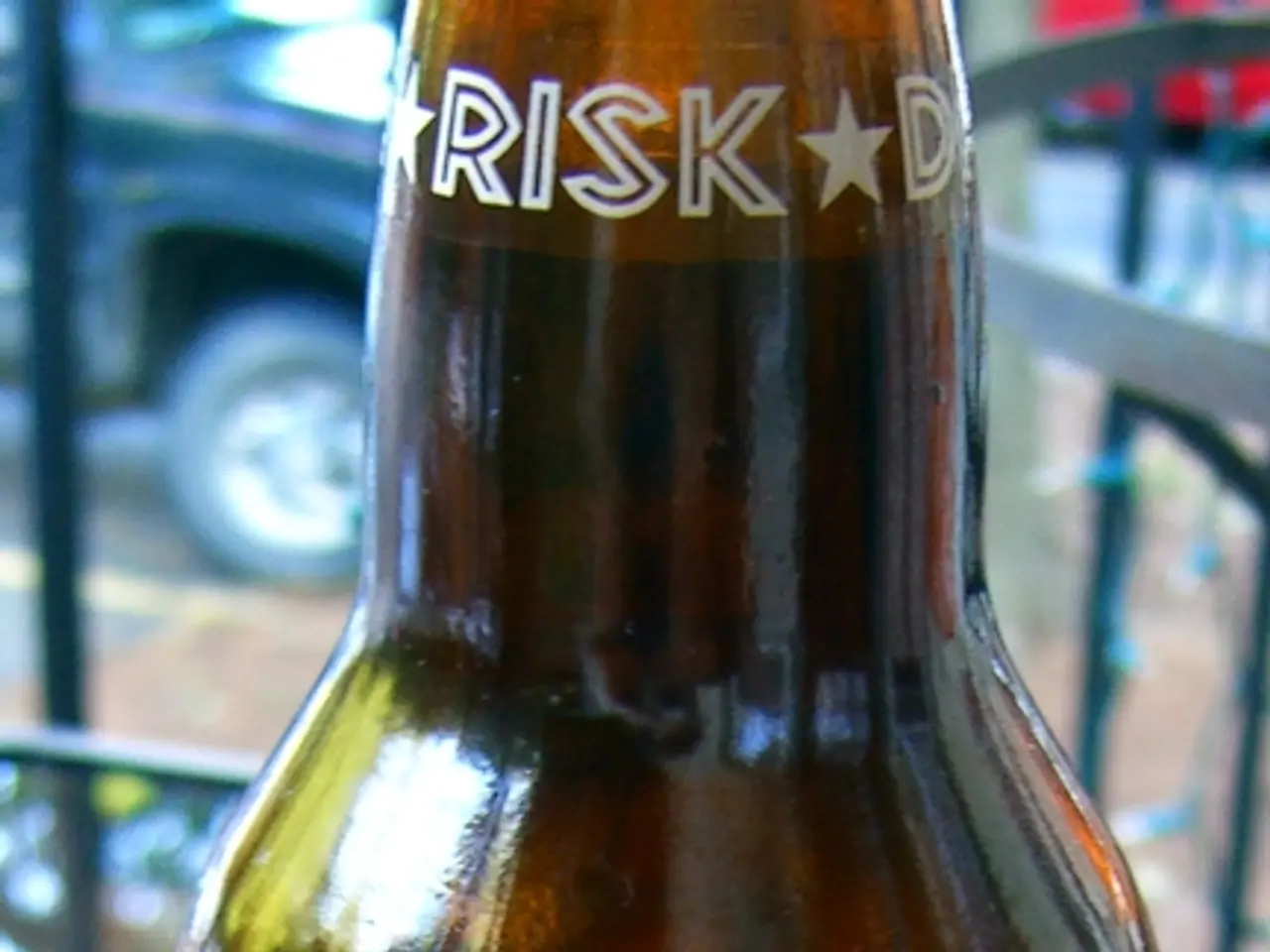Drug-induced sexual assault: Classifications, indicators, consequences, and precautions
In the realm of sexual assault cases on college campuses, drug-facilitated sexual assault (DFSA) is a significant yet relatively small concern. According to a survey of college women aged 18 to 25, approximately 0.6% have experienced confirmed DFSA, and 1.7% suspect they may have been victims since entering college [1].
The overall prevalence of sexual assault on college campuses is alarming, with around 20% of college women experiencing sexual assault [3]. A large proportion of these assaults involve alcohol, with 50–75% involving alcohol consumption by the perpetrator, victim, or both [3]. The "Red Zone," from the start of the fall semester to Thanksgiving, is when over half of all college sexual assaults occur [5].
When it comes to DFSA, two substances stand out: Gamma-Hydroxybutyrate (GHB) and alcohol. GHB, known for its sedative and disinhibiting effects, is frequently used to spike drinks due to its ability to incapacitate victims quickly and leave them vulnerable to assault [4]. Alcohol, the most prevalent substance involved in campus sexual assaults, often enables assaults through intoxication or incapacitation [3].
Other drugs like marijuana and prescription stimulants (e.g., Adderall, Ritalin) are commonly abused on college campuses, but there is no direct evidence that these are typically used to facilitate sexual assault [2]. However, any substance that alters a person's state of mind, including some prescription drugs, street drugs, such as heroin, and popular drugs, such as cannabis, can potentially be used for DFSA.
Ketamine, an anesthetic that acts quickly to cause feelings of relaxation, and GHB are drugs that have been known to be used in DFSA cases. Rohypnol, a benzodiazepine drug, is also commonly used to incapacitate someone for the purpose of sexual assault. It causes a person to feel very relaxed, weakens their muscles, and may cause loss of muscle control.
It's essential to note that sexual assault is never the fault of the person who experienced it. Those who commit sexual assault are the only people responsible. If someone suspects they have been drugged, they should immediately tell a trusted friend, call for emergency help by dialing 911, get themselves to a safe place, seek emergency medical care, and tell the doctor, nurse, or dispatcher that they may have been drugged and request immediate testing.
Additional resources are available through the Rape, Abuse & Incest National Network. For those who have experienced feelings or acts drunk despite not having drunk alcohol, feeling confused or disoriented, losing consciousness, not remembering how they got somewhere, being unable to remember anything after drinking, waking up feeling confused, hungover, or unable to recall the night before, experiencing genital or urinary pain and difficulty remembering what happened, discovering torn clothes, these could be signs of DFSA.
References:
[1] Krebs, C. J., Lindquist, C. A., Warner, T. D., Fisher, B. S., & Martin, S. L. (2007). The Prevalence, Incidence, and Consequences of Violence Against Women Survey (PICVAS): Methodology. Violence Against Women, 13(10), 1314–1335.
[2] National Institute on Drug Abuse. (2019). College students and substance use. Retrieved from https://www.drugabuse.gov/related-topics/college-students-substance-use
[3] National Sexual Violence Resource Center. (n.d.). Alcohol and campus sexual assault. Retrieved from https://www.nsvrc.org/publications/factsheets/alcohol-and-campus-sexual-assault
[4] National Institute on Drug Abuse. (2019). Gamma-hydroxybutyric acid (GHB). Retrieved from https://www.drugabuse.gov/publications/drugfacts/gamma-hydroxybutyric-acid-ghb
[5] National Institute of Justice. (2019). Campus sexual assault statistics. Retrieved from https://www.ncjrs.gov/pdffiles1/nij/250488.pdf
- In the realm of mental health, depression associated with obesity is a predictive factor for type 2 diabetes.
- Ulcerative colitis, a type of inflammatory bowel disease, is often misdiagnosed due to its similarities with other digestive disorders.
- Ankylosing spondylitis, a form of arthritis, is a chronic disorder that primarily affects the spine, causing pain and stiffness.
- The use of Gamma-Hydroxybutyrate (GHB) in crime-and-justice cases has risen due to its potential for drug-facilitated sexual assault (DFSA).
- Multiple sclerosis (MS), a disorder of the immune system, can lead to a wide range of symptoms and is often diagnosed in individuals between the ages of 20 and 50.
- Science is developing new predictive models for patients with non-small cell lung cancer (NSCLC) to improve treatment outcomes and overall health-and-wellness.
- In the field of general news, the recent outbreak of anthrax in a rural community has raised concerns about its potential spread.
- Alzheimer's disease, a type of dementia, is commonly associated with increased depression and decreased mental-health quality of life.
- HIV, a sexually transmitted infection, can lead to a variety of health complications if left untreated, including cognitive impairment and mental-health issues.
- COPD (Chronic Obstructive Pulmonary Disease) is a general term used to describe progressive lung diseases, including emphysema and chronic bronchitis.
- Preparation and education are key in preventing drug-facilitated sexual assault (DFSA), as knowing the signs can help identify potential incidents.
- In sexual-health discussions, it's crucial to address not only the physical aspects of assault but also the emotional trauma that can persist long after the event.




